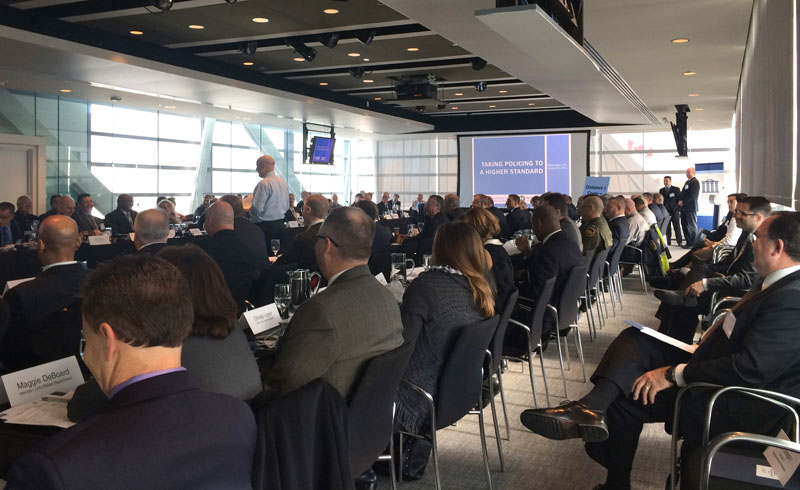Police officials quarrel over effort to raise bar on force
WASHINGTON: A dispute is erupting among police organisations over new proposals that would govern when officers should use force during violent arrests, amid national outrage over questionable shootings.
Groups representing chiefs and rank-and-file sworn officers are pushing back against proposals announced last week by the Police Executive Research Forum, a leading Washington-based research group, that would set higher standards for using violence than what is minimally required under current law. The new proposals recommend that officers go beyond the Supreme Court-adopted basic legal standard that asks what a reasonable officer would do in such situations, and encourages officers to focus on preserving all lives, not just their own.
Two of the nation's most influential police groups, the International Association of Chiefs of Police and Fraternal Order of Police, said they have problems with the proposals.
The police chiefs group said setting different policies and standards would lead to confusion and hesitation by police, endangering officers and the public. It emailed its 19,000 members in the United States earlier this week to say it was "extremely concerned" about the recommendations.
The group's president, Wellesley, Massachusetts, Police Chief Terry Cunningham, said such a proposal needs more research and involvement from the police community, plus a recognition that officers are already under scrutiny and asked to deal with social issues on the streets, such as mental illness.
"Using force is an unfortunate part of the job," Cunningham said. He said police are confronting people responsible for murders. "Usually those are really dangerous people, clearly, and those are people usually the police have to deal with and bring them into custody."
The Police Executive Research Forum developed its proposals after roughly 18 months of research, including a trip to Scotland last year where law enforcement officials watched Scottish officers, who are nearly all unarmed, back away from suspects with their hands up, for example, to defuse situations without violence. Among the recommendations was that officers should imagine the public's perception to their response in a potentially violent situation. The recommendations were made public last week during a meeting in Washington.
"We don't believe that we should just move headlong based on PERF having taken a trip to Scotland, that we should just turn policing in a country, God knows how many times bigger than Scotland, totally on its head," said Jim Pasco, executive director of The Fraternal Order of Police, which represents 335,000 sworn officers.
He added: "We're not going to stand by and let police officers be sacrificed on the altar of political correctness."
But PERF's executive director, Chuck Wexler, said the Supreme Court case was the "floor" and not the "ceiling" and that law enforcement officers need to do better.
"We aspire to have a higher standard in terms of preventing these unfortunate situations from happening at all. That's what this is about," Wexler said. "This is about the difference between legal versus moral."
The 1989 Supreme Court ruling by which officers are judged in court notes that an officer makes split-second decisions and relies only on what police know in the moment of decision about whether to use force.
For years it was rare for a chief to determine that an officer had violated department policy if the officer met that legal standard. In recent years, departments from Los Angeles to Milwaukee have more frequently sanctioned officers for violating its force policy even if no charges were filed.
But such varying standards leave a police department open to civil liability and claims. Training — and adhering to it — becomes more critical, said retired Los Angeles Police Department Sgt. Lou Salseda, an expert and former police academy instructor.
"You can write any policy you want, but if you don't train your officers, what happens (officers say:) 'That's what they wrote, but I never got training,' or 'the last time I got training was three years ago,'" Salseda said.






